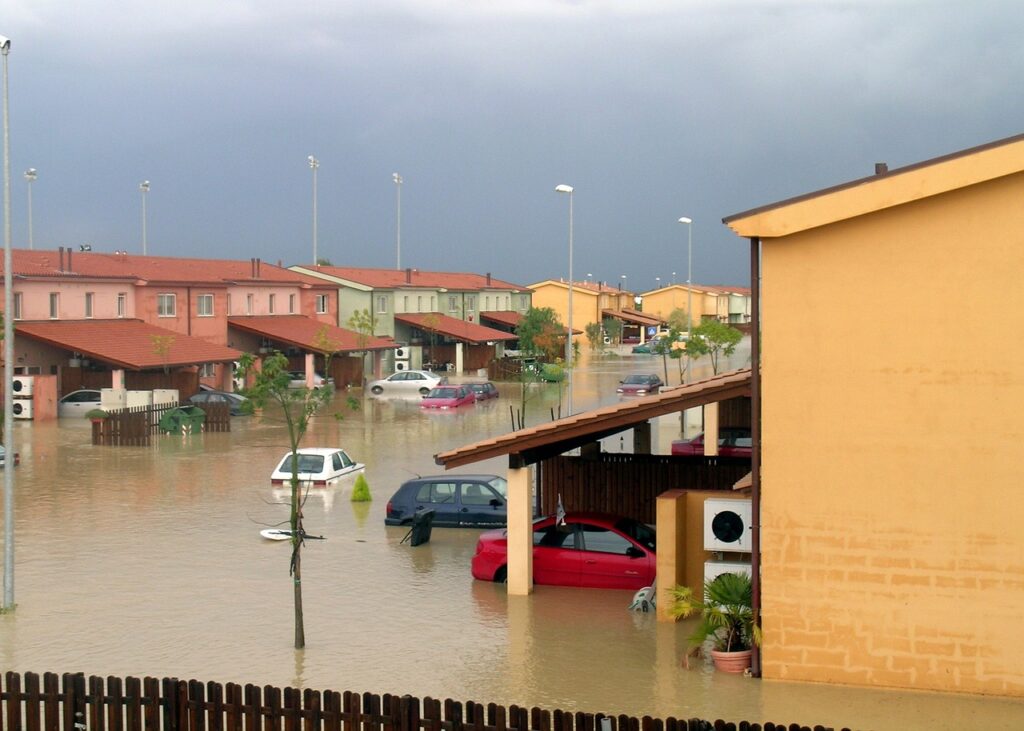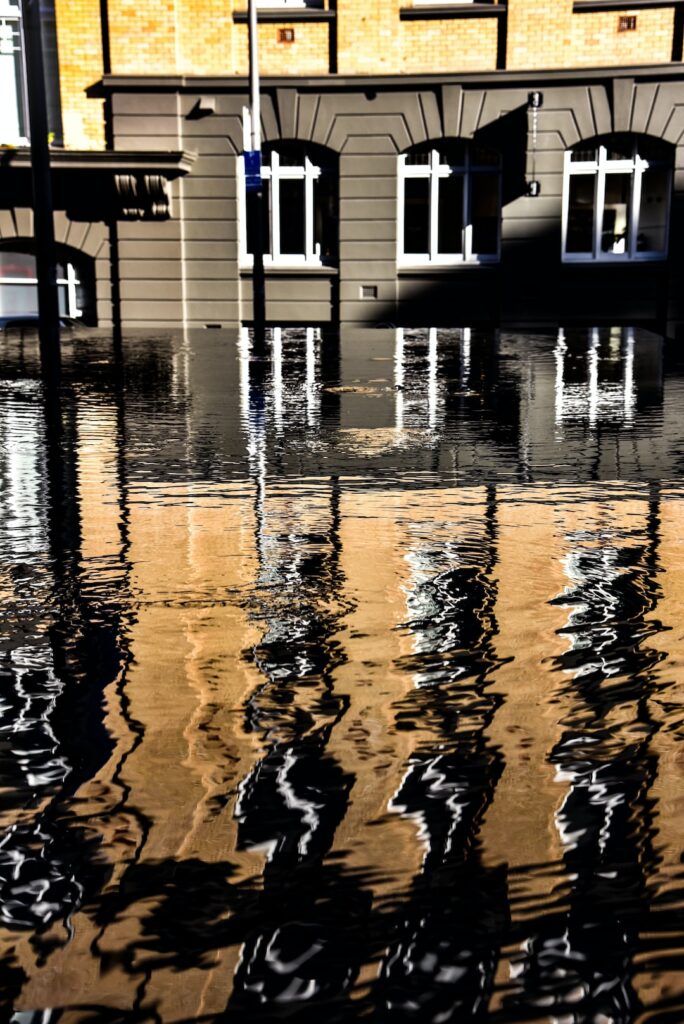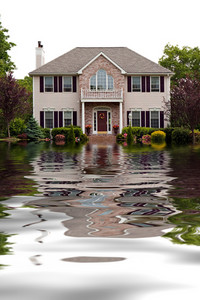Introduction
Water damage is one of the most common and costly problems that homeowners face. It can strike at any time, without warning, and often leads to expensive repairs. That’s why it’s important to be aware of the risks and know what to do if you experience water damage in your home.
In this article, we’ll explore the different types of water damage, the most common causes, and what you can do to prevent it. We’ll also provide some tips on what to do if your home does suffer from water damage.
By the end of this article, you’ll have a better understanding of water damage and what you can do to protect your home from it.

Causes of Water Damage: The most common causes of water damage include burst pipes, overflowing appliances, and storm damage. Burst pipes and plumbing leaks can be especially damaging because they’re often hidden until significant damage is done. Appliances such as washing machines, dishwashers, and toilets can also cause water damage if they’re not properly maintained or if they break and overflow. Finally, flooding from storms or heavy rains can severely damage a home in a short period of time. No matter the cause, water damage can occur quickly, leading to further damage and costly repairs if not addressed in a timely manner. The Effects of Water Damage:
The effects of water damage
can be devastating to a home and the possessions within it. Water can quickly penetrate the walls and flooring of a home leading to rot, mold, and structural damage. These problems can go unnoticed for months or years and can lead to expensive repairs or health risks. Not to mention, water damage can also lead to negative oxygen flow in a home, furthering the growth of mold and mildew. Additionally, personal possessions, furniture, and clothing can be damaged by water as well. It’s important to act quickly if you experience water damage in your home in order to reduce the amount of damage and to minimize the cost of repairs. Prevention Tips: There are several things you can do to prevent water damage in your home. It’s important to regularly check for plumbing leaks and inspect your home for any potential water damage-related issues. Additionally, it’s important to check appliances such as dishwashers, washing machines, and toilets for any signs of malfunction. If the appliance isn’t working properly, it may be necessary to replace it rather than potentially cause water damage in the future. What to Do if You Experience Water Damage: If you experience water damage in your home, it’s important to act quickly. First and foremost, shut off the water source such as a broken pipe or a burst appliance. Next, call a local water damage restoration and remediation service. These services specialize in helping homeowners restore their homes after water damage. Finally, make sure to document all of the damage and take appropriate photos. This will help in filing an insurance claim if necessary.
Conclusion
: Water damage can be devastating to a home and the possessions within it. It’s important to be aware of the risk and to be prepared for the worst. The best way to protect your home is to regularly check for plumbing or appliance leaks, and to inspect the home for potential water damage points. Additionally, if you experience water damage in your home it’s important to act quickly and to involve a professional water damage remediation service. With these tips, you can be better prepared for any kind of water damage that may come your way.
Why Most Home Insurance Policies Don’t Cover Flood Damage – And What You Can Do About It
Introduction
Floods are one of the most common and costly natural disasters in the United States. According to the Federal Emergency Management Agency (FEMA), floods cause an average of $8 billion in damage each year.
While most home insurance policies cover damage from storms, wind, and hail, they typically exclude flood damage. This can leave homeowners with a hefty bill if their home is flooded.
To make matters worse, flood damage is often not covered by disaster relief programs like FEMA. This means that homeowners who don’t have flood insurance are on their own when it comes to repairing their home.
If you live in a flood-prone area, it’s important to understand your risks and purchase flood insurance if it’s available to you. In this article, we’ll discuss why most home insurance policies don’t cover flood damage, what causes floods, and how you can protect your home from this natural disaster.
Home insurance typically doesn’t cover flood damage
: It’s important to understand that most home insurance policies don’t cover flood damage. The reason for this is because floods are considered a “natural disaster” by insurers. Since natural disasters are by definition unpredictable, they are not viewed as an acceptable risk by insurers. Most homeowners assume that their home insurance policy covers all possibilities, including natural disasters, but this isn’t the case. It’s also important to note that flood damage isn’t covered by private insurance programs like Wind Hail and Earthquake (WE), either. In order to receive coverage for flood damage, you must specifically purchase a flood insurance policy. Flood insurance is available through the National Flood Insurance Program (NFIP) and a few private insurance companies.
What causes floods and why they’re so expensive to repair
: Floods can be caused by a variety of factors, including heavy rains, melting snow, hurricanes, and even clogged storm sewers. The resulting damage can be devastating and costly to repair. Floods can cause extensive water damage as well as damage from debris such as mud, trees, and other debris. Water damage can cause mold, deterioration of building materials, and structural damage to foundations and other homefeatures. Floors, walls, and ceilings can be destroyed, as can electrical and plumbing systems. The cost of repairing flood-damaged homes can be staggering. Homeowners may need to replace major components like walls, floors, and foundations. Electrical and plumbing systems may also need to be replaced, as well as furniture, appliances, and other personal belongings. In addition to replacement costs, homeowners may also face significant cleanup costs.

How to prepare for a flood
: The best way to protect your home and belongings from flood damage is to prepare in advance. FEMA recommends taking the following steps to prepare for a flood: First, identify your flood risk and research any insurance options available in your area. Learn how you can protect your property from floods and other disasters by visiting www.FloodSmart.gov or calling 1-888-379-9531. It’s important to create a disaster plan for your family and know how to respond in an emergency. Develop an evacuation plan and practice it with your family. Lastly, build an emergency kit with at least three days of food and water, a flashlight and radio, and other supplies.
What to do if your home is flooded
: If your home is flooded, the first thing to do is call your insurance company to find out if you are covered for flood damage. If you have a flood insurance policy and have flood damage, it’s important to take photos of the damage and get repair estimates. You should also contact your local emergency management office to learn about any local programs or services that may be available to you. Additionally, contact your electric, gas, and water providers to shut off power, gas, and water until the property is inspected and cleared for repair.
How to file a flood insurance claim
: If you have flood insurance, the claims process works much like any other insurance claim. The first step is to report the flood damage to your insurance company. Provide them with as much information as possible, including photos of the damage and repair estimates. Your insurance company will then contact a certified claims adjuster to assess the damage and process your claim. The insurance company will then issue payment for the covered losses. It’s important to document all communication with your insurance company and keep any repair estimates and receipts. This will help you track the progress of your claim and make sure you are reimbursed for all covered losses.
When to purchase flood insurance
: FEMA recommends purchasing flood insurance at least six months before a flood is expected in your area. Flood insurance policies must be purchased from your insurance company or local independent agent prior to an impending flood. It’s important to understand that standard home insurance policies do not cover flood damage, so you must purchase a specific flood insurance policy to be covered for any losses. Flood insurance also has a mandatory 30-day waiting period before it goes into effect, so it is important to plan ahead. You can purchase a policy from your local insurance company or the National Flood Insurance Program.
Some final thoughts on flood damage and home insurance
: Floods are one of the most common and costly natural disasters in the United States. Home insurance typically doesn’t cover flood damage, so it is important to purchase a specific flood insurance policy if you live in an area at risk of flooding. It’s also important to take steps to protect your home from flood damage. FEMA recommends identifying your risk, creating an evacuation plan, and preparing an emergency kit in advance. If your home is flooded, contact your insurance company immediately and document the damage. By understanding flood risk and taking steps to prepare, you can minimize the financial and emotional damage of a flood.
Why You Should Always Call A Professional For Flood Damage
Introduction
A flood in your home can be a very devastating event. Not only can it ruin your possessions, but it can also cause serious damage to your home itself. If you have flood damage in your home, it is important to call a professional to assess the damage and determine the best course of action.
Attempting to clean up flood damage yourself can be very dangerous. There are many health hazards associated with floodwaters, including contaminated water, mold, and mildew. In addition, floodwaters can be very corrosive and can damage the structure of your home if not cleaned up properly.
Calling a professional to assess and clean up flood damage in your home is the best way to ensure that your home is restored to its original condition and that you and your family are safe.
A Flash Flood Can Happen Anytime, Anywhere:
A flash flood can occur at any time and in any location, from the coast to the mountains. Flash floods occur when a large amount of water is deposited suddenly by a deluge of rain, melting snow, or a burst of upstream water. Flooding can occur in as little as a few minutes and can be very damaging. If you live in an area prone to flooding, it is important to be prepared in case of a flash flood. Make sure that your home is equipped with sandbags, and make sure to stock up on flood-resistant materials, such as bricks and roof shingles. It is also important to have flood insurance so you can recoup some of the costs of repairing your home if it is damaged. // Flooding is One of the Most Destructive Natural Disasters:Flooding is one of the most destructive of all natural disasters. It can wipe out entire homes and businesses, devastating entire neighborhoods. If a flood is severe enough, it can even cause deaths. Floods can also contaminate water sources and cause widespread health problems. It doesn’t matter if the flooding is from a broken pipe, melting snow, or a flash flood. The important thing is that the flood waters be dealt with as soon as possible in order to minimize damage to homes and to prevent any health risks.
Why Calling a Professional is the Best Option:
Calling a professional is the best option when it comes to dealing with flood damage. Professionals have the knowledge and experience to assess the extent of the damage and determine the best course of action. They can also provide help with preparing the home for flooding in the future. Professionals have the proper tools and techniques necessary to clean up the flood damage in a safe and effective manner. They can also provide advice on restoring your home to its original condition, including help with insurance claims. In addition, they will be able to identify and address any health risks associated with the flooding. // What to Do Until the Professionals Arrive:In the event of a flood, it is important to remain calm and take actions that will help minimize the damage and protect your health. If possible, move any furniture and belongings to higher ground. Keep away from the floodwaters and be aware of the potential risks associated with them. Also, turn off the power and water to the home. This will help minimize damage to your home and protect your family from any potential shock hazards. // How the Professionals Will Help: When the professionals arrive, they will assess the damage and determine the best course of action. They may need to remove any wet items in order to dry the area properly. They will also sanitize and deodorize the area to help prevent the growth of mold and mildew. Additionally, they may need to replace any damaged items or structures and restore the home to its original condition. This may include repairing or replacing carpets and walls, and repairing any structural damage that may have occurred. The professionals may also need to install flood barriers and other preventative measures to help protect the home from future flooding. //
Conclusion
:Floods can be devastating, but it is possible to recover from flood damage with the help of a professional. Calling a professional is the best option for repairing the damage and restoring your home. They will assess the damage and determine the best course of action for restoring the home and protecting your family from any potential risks. If a flood does occur, make sure to call a professional as soon as possible in order to minimize damage and keep everyone safe.
What You Need To Know About Flood Damage Insurance Claims
Introduction
If you live in an area that is prone to flooding, you know how important it is to have flood insurance. But what happens if your home is flooded and you need to make a claim? How do you know if your flood damage will be covered?
The first thing you need to do is contact your insurance agent or company to start the claims process. Flood damage is usually covered by a standard homeowners insurance policy, but there are some exceptions. For example, damage caused by a background water source, such as a leaky pipe, is not covered.
It’s important to know what is and is not covered by your policy so that you can be prepared in the event of a flood. Keep reading to learn more about flood damage insurance claims!
1. Document the Damage Before you start the claims process, take photos and videos of all the damage to your home and belongings. This will help the insurer to understand the extent of the damage and assess how much you should be paid for the claim. 2. File a Claim as Soon as Possible Notify your insurance company or agent as soon as possible after the flood. Most policies have a deadline for filing a claim, so it’s important to act quickly. Your insurer will send an adjuster to assess the damage and determine the amount of the claim. 3. Keep Track of All Costs Keep track of all the damage costs incurred because of the flood. This includes cleanup, repair, and replacement costs for your home’s structure and contents, as well as any additional living expenses you incur such as hotel stays and food costs. 4. Be Prepared to Work with Your Insurer The claims process can be complex, especially in the aftermath of a flood. Be patient and prepared to work with your insurance company or agent to ensure that you receive the full compensation you are entitled to. 5. Consider Working with a Public Adjuster If you are not satisfied with the settlement offered by your insurer, you can consider hiring a public adjuster. Public adjusters are experts in assessing and negotiating insurance claims and can help you get the best possible settlement for your damages. In conclusion, filing a flood damage insurance claim can be a complicated process, but understanding your policy coverage, documenting damages, and being prepared can help you get the compensation you need to recover from the flood.


